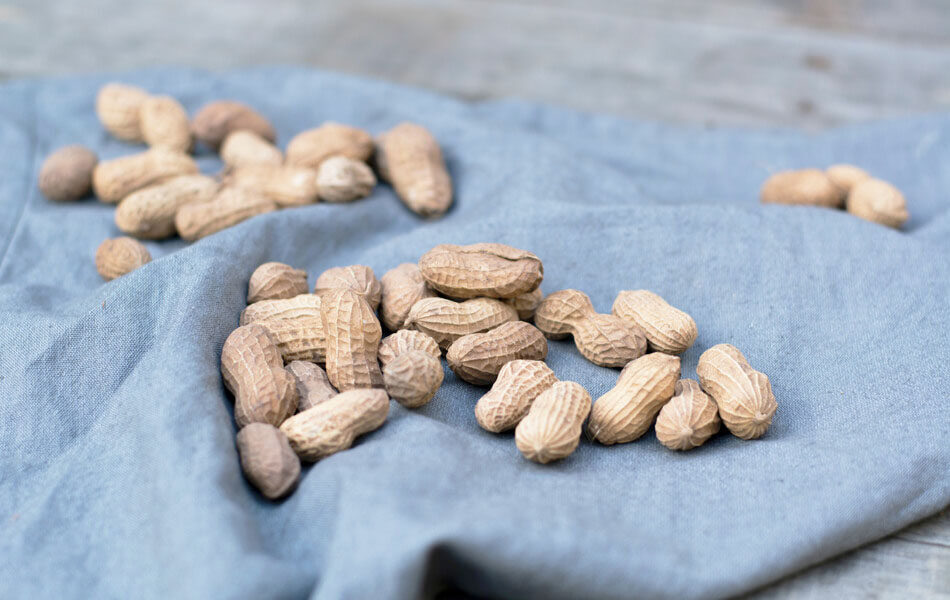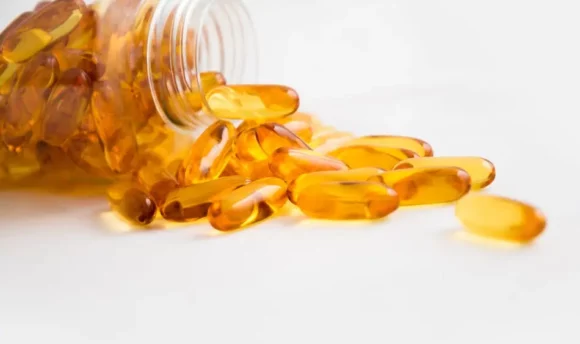Are Peanuts Good for Weight Loss? Nutritional Value, Benefits, and Tips
Nuts get a bad reputation for their high-fat content, but many people could be missing out on the health benefits of adding peanuts to their weight loss program. Here we cover peanuts for weight loss, including nutritional value, benefits, and how to eat them.

Peanuts belong to the legume family, and unlike tree nuts such as pecans and walnuts, peanuts grow beneath the soil. People consume peanuts in several variations. From salted peanuts to peanut butter, there are plenty of ways to enjoy these groundnuts.
Peanuts, alongside other nuts, are often overlooked as a healthy snack to help you lose weight. You might think that peanuts have no place in a healthy diet due to their fat content. But while they do have a high-fat content, most are heart-healthy fats.
As part of a balanced diet, moderate nut consumption can greatly benefit your weight loss journey. This article discusses peanuts and their role in healthy weight loss.
Are Peanuts Good for Weight Loss?
Although peanuts have high fat and calorie content, they can promote weight loss for several reasons. Primarily, they are rich in fiber, protein, and healthy fats, all of which contribute to satiety. You can eat peanuts and feel full for longer, mitigating your desire to eat more food and consume more calories.
Therefore, peanuts may help reduce your overall calorie intake, resulting in weight loss. It is important, however, not to overindulge in peanuts. With 567 calories per 100g, excessive consumption could potentially lead to weight gain. Enjoying peanuts in moderation as part of a healthy diet is best.
That said, nut consumption is not currently linked to long-term weight gain but promotes weight management and reduced obesity risk.
Peanuts Nutritional Value
The table below shows the nutritional value of peanuts per 100g. Peanuts are also an excellent source of niacin, folate, and vitamin E.
| Net Carbs | Total Carbs | Fats | Protein |
| 7.6g | 16.1g | 49.2g | 25.8g |
| Calories | Fiber | Sugars | Glycemic Index |
| 567 | 8.5g | 4.72g | 13 |
5 Benefits of Peanuts for Weight Loss
When losing weight is the goal, it’s common to eliminate certain foods from your eating pattern to shed noticeable pounds. Fortunately, peanuts don’t have to join the forbidden list. Here are 5 reasons to add peanuts to your diet plan for healthy weight loss.
#1 Source of healthy fats
A rich source of healthy fats, peanuts are great for heart health. They have a high unsaturated fat content with monounsaturated fatty acids and polyunsaturated fatty acids.
These fats can help lower cholesterol levels and are associated with a lower risk of heart disease and other major causes of death.
#2 Supports digestive health
Thanks to the high fiber content, peanuts support the digestive system. Consumption of dietary fiber helps keep you regular, prevents constipation, and slows down digestion to keep you feeling full.
Peanuts also contain high levels of polyphenols, which can benefit the gut microbiota, promoting gut health by enhancing the growth of beneficial bacteria.
Moderation is key, however, as some people may experience digestive distress from overconsuming peanuts and peanut butter.
#3 Keeps you fuller for longer
Peanuts and other nuts are known for promoting satiety. They are digested slowly, which means you feel full for a more extended period, reducing food cravings and promoting a lower calorie intake.
Additionally, peanuts require more chewing, so the extra work may mean that you’re absorbing fewer calories.
#4 Helps regulate blood sugar
Peanuts have a low glycemic index of 13, which means they don’t cause a rapid spike in blood sugar levels.
People with type 2 diabetes may benefit from eating peanuts as they can improve fasting blood glucose, while eating peanut butter at breakfast may help regulate blood sugar in women with obesity.
#5 Contains amino acids
Peanuts are rich in amino acids – the building blocks of proteins. They have a high protein content that promotes satiety and appetite control, like fiber and fats.
Protein-rich foods build and strengthen the muscles, which is beneficial as you incorporate more exercise into your weight loss program. Proteins are critical if you want to lose fat without losing muscle.
High-protein diets are also linked to increased metabolic rate and a reduction in body fat.
How to Eat Peanuts for Weight Loss
Salted peanuts might be your favorite, but if you want to lose weight, choosing peanuts that have undergone minimal processing is beneficial. They are best consumed raw, roasted, or in boiled form, where they are free from added salt, sugar, and artificial flavorings.
Several varieties are available, including roasted peanuts, Virginia peanuts, Spanish peanuts, valencia peanuts, and runner peanuts. You can also consume peanuts in the form of peanut flour, peanut oil, and peanut butter. Skin-on peanuts are more fiber-rich.
If selecting peanut butter, choose natural peanut butter without added salt and sugar.
FAQs
Peanuts have a high amount of calories and fat, but they are not fattening if you watch your portion size and consume them in moderation. These nuts are rich in monounsaturated fatty acids and polyunsaturated fatty acids – the good kind of fats. Eating them can even aid in weight loss.
Peanuts are high in calories, with 567 calories per 100g serving of raw peanuts. One ounce (28.4g) of peanuts, the equivalent to a serving, has approximately 161 calories. It is important to monitor your intake of peanuts to avoid eating too many calories.
While peanuts are beneficial to the digestive system, some people find them difficult to digest. This is likely due to the high fiber content, which not everybody is accustomed to, and eating them may cause symptoms such as bloating, gas, and diarrhea.
Boiled peanuts are a nutrient-dense snack with more antioxidants than other peanut varieties as the boiling process draws the antioxidants from the shells. They also contain fewer calories and less fat than raw and roasted peanuts. Plus, unlike other kinds of peanuts, they have zero sugar.
Yes, peanuts are high in fat, with 49.2g of fat per 100g serving. The good news is that peanuts are rich in healthy fats, including polyunsaturated and monounsaturated fats. Unlike saturated fat, which can be harmful, these good fats benefit your heart and overall health.
A Word From Our Nutritionist
Peanuts are a great addition to a healthy eating plan as they are rich in protein, fiber, and healthy fats.
This combination of macronutrients can support weight loss by making you feel full and satisfied for a longer period. At the same time, the macros content contributes to good heart and digestive health.
Despite the significant calorie content, studies have shown that nut consumption is unlikely to cause weight gain. But eating too many calories from any source can hinder your weight loss journey, so you should still be mindful of your intake.
Remember that peanuts alone won’t reduce your overall body weight. Sustainable weight loss relies on healthy eating habits and adequate exercise to ensure you burn calories and create a successful calorie deficit.
Conclusion
A diet that includes peanuts can encourage weight loss and aid weight management by filling you up, reducing your daily calorie intake, and keeping your blood sugar in check.
To maximize your body’s ability to burn stubborn fat and reach your goals, combine your peanut snacking with a balanced diet and regular physical activity. Whether you want to lose 5 pounds or 20 pounds, the combination is a necessary, clinically-proven strategy.
If you don’t enjoy eating whole nuts, you can get many of the same benefits from peanut butter. Either way, peanuts are a good alternative to other snack foods that don’t provide you with nutritional benefits. So, the next time you’re craving junk food, try a handful of peanuts instead!

















































 Select your language:
Select your language: 








